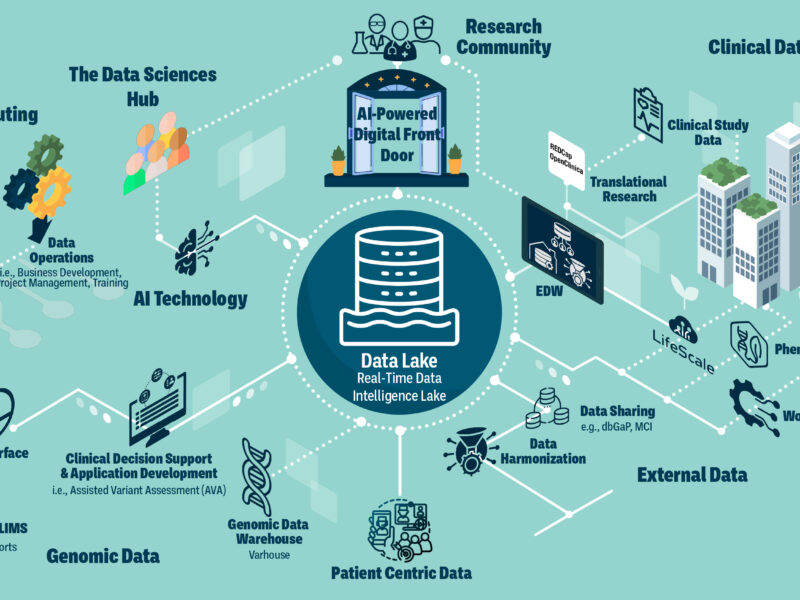Prematurity and Genomics: Can Complications For a Baby Born Preterm Be Predicted?
Prematurity and Genomics: Can Complications For a Baby Born Preterm Be Predicted? https://pediatricsnationwide.org/wp-content/uploads/2020/11/Achieving-Clarity-Header-1024x575.jpg 1024 575 Eric Butterman Eric Butterman https://secure.gravatar.com/avatar/29a19e70be20db82b98bc00f11c0da1e?s=96&d=mm&r=g- November 10, 2020
- Eric Butterman

Complications from being born preterm are the number one cause of death in the world for children under the age of five, says Leif Nelin, MD, division chief of Neonatology at Nationwide Children’s Hospital and professor of Pediatrics at The Ohio State University . But why do some babies born preterm develop complications while many others seem to thrive? And what if we could predict through genetics who was much more likely to have those preterm complications? A pilot study put this to the test.
“It has been believed that complications were a matter of chance but the thought here was what if it wasn’t the case?” says Dr. Nelin, senior author of the study, which was published in Pediatric Research. “This study’s data strongly suggests that there are genetic influences on these complications of being born preterm. If we can predict it then we may sometimes be able to treat the issue even before the baby is born.”
The study sequenced 182 exomes from infants with gestational ages ranging from 26 to 31 weeks, Dr. Nelin says, with a polygenic risk score for the top 10 genes used to predict complications. The study used the Perinatal Research Repository at Nationwide Children’s Hospital.
If more research backs up the findings, he says, medicines could be possibly developed to treat or possibly prevent preterm issues such as bronchopulmonary dysplasia and necrotizing enterocolitis.
Dr. Nelin says the hope for future studies is to have a larger sample size that included significant amount of infants in it from ethnicities other than what is categorized as non-Hispanic white. “The non-Hispanic Black numbers in our studies were lower (at 51 infants) and when analyzed separately it didn’t come out to be significant,” he says. “But we think the pilot data strongly suggest that if there’s a bigger sample size that it would find what was found in non-Hispanic Whites. It’s also reasonable to assume it will hold true for other ethnicities but in order to know for sure we have to expand the study.”
Among the technology utilized, Churchill, developed in house, was used for secondary analysis.
As noted in Pediatric Research, to the study authors’ knowledge, this is actually the first ever whole-exome sequencing study focused on genetic differences in neonatal complications. To Dr. Nelin, it is a chance to make history in an even more important way.
“If we can get a handle on those complications and be able to predict them early and maybe even before they are born, we could have targeted therapies that could truly change the complications,” he says.
Reference:
Stewart W, Gnoma KM, White P, Kelly B, Klebanoff M, Buhimschi IA, Nelin LD. Prediction of short-term neonatal complications in preterm infants using exome-wide genetic variation and gestational age: a pilot study. Pediatric Research. 2020 Oct;88:653-660.
Image credit: iStock





